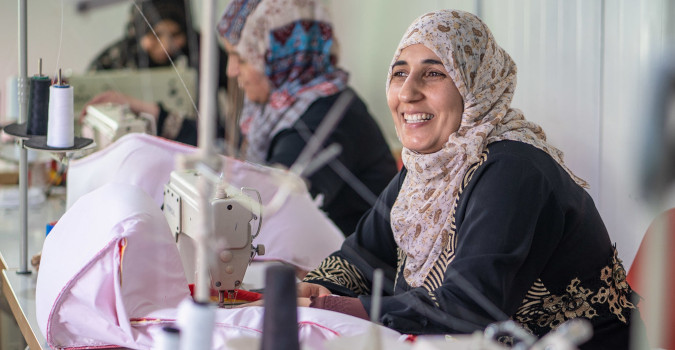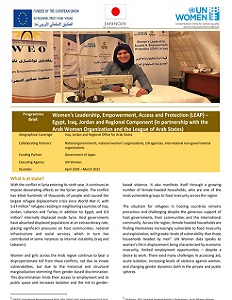Economic empowerment
UN Women in Iraq has always invested in women’s economic empowerment through many of its projects and activities as it can result in gender equality, poverty eradication and inclusive economic growth. UN Women has been engaging with a wider array of national stakeholders at the legislative and policy level to develop an economic empowerment national action plan in partnership with the World Bank (WB). This work is consistent with the Iraq's Second Poverty Reduction Strategy and the Social Protection Strategic Framework.

Moreover, UN Women works to mitigate the different barriers women face at the economic level including the segregation of occupations by gender, social pressures, household economic imperatives, limited access to safe workplaces, childcare and transportation. UN Women work involves establishing strong partnerships with stakeholders, grassroots and civil society organizations in all parts of the country to facilitate the economic empowerment of women by:
- Conducting evidence-based assessments on challenges faced in accessing employment and the current working conditions in key employment sectors (i.e. agriculture, education and health) among conflict-affected women in Iraq, including refugees, internally displaced persons (IDPs), returnees and host community women.
- Supporting social mobilisation and advocacy on key challenges to women’s labour force participation and decent work standards.
- Providing policy advice and technical assistance to the government on legislation, policies, and strategies aimed at promoting and protecting women’s employment and economic empowerment.
- Supporting partnerships with the private sector, civil society and government in order to deliver training for women in technical and vocational areas, as well as building their leadership and entrepreneurship skills.
Adopting a participatory approach, particularly with community-based partners, allowed UN Women to better respond to actual needs as reflected by beneficiary communities. For instance, some implementing partners in economic empowerment programmes switched their sewing workshops to mask and gown production to support their communities, hence allowing women better income-generation opportunities during times of hardship caused by the COVID-19 pandemic.
Project Brief
